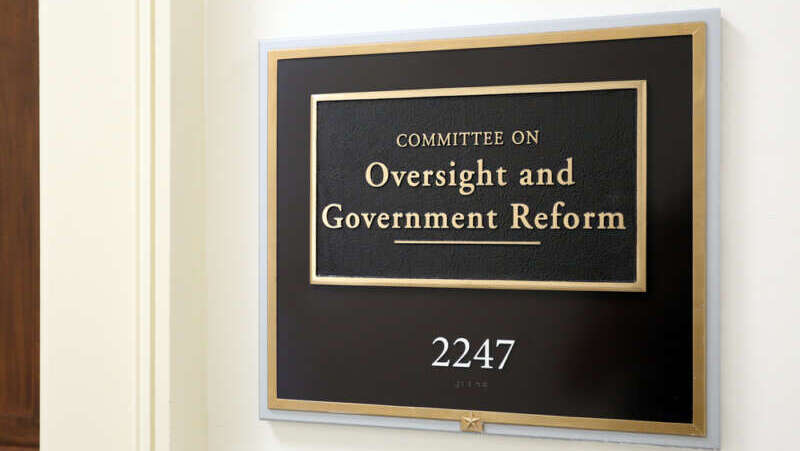
Democratic and Republican lawmakers on the House Oversight and Reform Committee clashed over methods of meeting the increasing power demands for artificial intelligence data centers during a Tuesday hearing on the topic.
In today’s hearing held by the Subcommittee on Economic Growth, Energy Policy, and Regulatory Affairs, Republicans and some witnesses pushed for looser permitting rules to fuel AI data centers, while Democrats and others championed renewable energy as the less harmful, more sustainable path forward.
“AI is likely to become one of the most consequential technology transformations of the century,” said Chairman Eric Burlison, R-Mo., in opening statements. “But planning for the future of machine learning is complex … Data center power demand is reshaping how power generators and utilities plan for future demand growth and the infrastructure needed to support this demand.”
Bipartisan lawmakers and the Trump administration have long expressed concern about energy shortfalls. According to the Department of Energy, U.S. data centers’ total electricity consumption is expected to rise 6 to 12 percent by 2028, compared to 2023.
“This rapid growth is astounding and has concerning implications for both current and future power generation,” the chairman said.
To meet the necessary power output, some witnesses called for looser permitting regulations on natural energy sources.
“Reality and arithmetic show that the needed power won’t come from squeezing more out of existing … all that will help, but it won’t be enough,” said Mark Mills, executive director of the National Center for Energy Analytics. “Soon enough, most of the new power will come from natural gas combustion turbines and engines. Those can be – in fact, they are – being built rapidly.”
Some witnesses also advocated for eliminating policy bottlenecks to bolster AI innovation.
“While our software rules allow rapid innovation, our energy regulations create crippling bottlenecks that threaten American AI dominance,” said Neil Chilson, head of AI policy at the Abundance Institute.
Ranking Member Maxwell Alejandro Frost, D-Fla., pointed to the health and environmental harms of natural energy sources in his opening statement, stating that powering AI innovation shouldn’t come at the expense of harm to Americans.
“Many will put this false dichotomy up, they have to choose an either/or approach – I reject that,” said Rep. Frost. “But as we enthusiastically pursue AI innovation, Congress must look out for working families and pass and strengthen responsible safeguards.”
Tyson Slocum, energy program director at Public Citizen, proposed a natural resource alternative to natural resources by combining clean energy sources with on-site battery storage.
Rep. Gary Palmer, R-Ala., suggested using small modular reactors (SMRs) – compact nuclear reactors designed for scalable and safer power generation – in the future for power generation.
“We could fuel a fleet of nuclear reactors for over 100 years,” said Rep. Palmer. “Wouldn’t it be interesting that China is building coal-fired plants to power their AI expansion, that we could then use nuclear on shuttered hydrocarbon plants with no emissions to power ours?”
Mills noted that while the infrastructure won’t likely exist to make SMRs for another decade, changes in regulations are required to innovate the reactors.
Lawmakers and witnesses also touched on limiting the use of water reserves to cool data centers in the West where water is impacted by droughts and is limited.
“[Data centers aren’t] only straining an already limited resource in our state, but the result also means that water rates are going up for families,” said Rep. Yassamin Ansari, D-Ariz. “If we really do want to dominate this industry as a country, we need it to be future-proof.”
Slocum proposed ensuring that data centers are recycling, reusing, or treating water resources used to cool data centers to avoid “dipping into aquifers or other drinking water resources just to keep large computer networks from overheating.”
